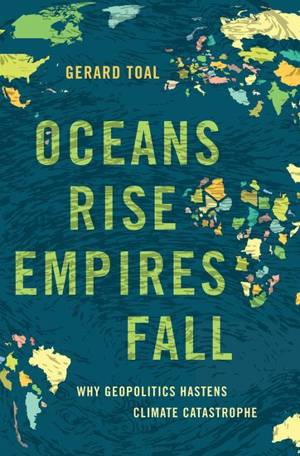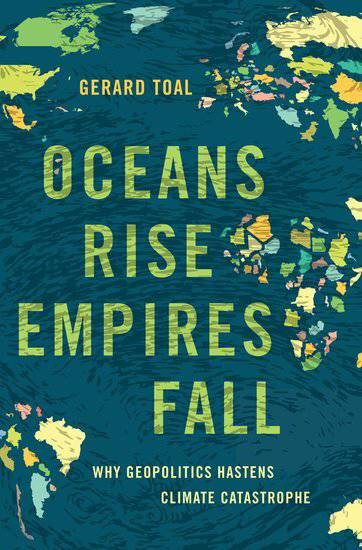
- Afhalen na 1 uur in een winkel met voorraad
- Gratis thuislevering in België vanaf € 30
- Ruim aanbod met 7 miljoen producten
- Afhalen na 1 uur in een winkel met voorraad
- Gratis thuislevering in België vanaf € 30
- Ruim aanbod met 7 miljoen producten
Zoeken
€ 31,45
+ 62 punten
Omschrijving
A powerful explanation of why geopolitical competition drives climate breakdown and inhibits action to prevent it. It is the decisive decade for climate change action, yet great power competition is surging. Geo-economic rivalries and territorial conflicts over Ukraine and Taiwan appear more important than collective action against catastrophic climate change. Why do great powers favor competition and rivalry over transnational policies to address the greatest threat humanity has ever faced? In Oceans Rise Empires Fall, Gerard Toal identifies geopolitics as the culprit. Examining its meaning, history, and leading thinkers, he exposes the geo-ecological foundations of geopolitics and the struggles for living space that it expresses. The book isolates three Earth-controlling practices that characterize geopolitics. The territorial control imperatives of great powers preclude collaborative behavior to address common challenges. Competing world historical missions drive rivalries and wars, like Russia's fossil-fuel-funded aggression against Ukraine. Military-industrial competition over leading edge technologies and critical minerals takes priority over collaborative decarbonization policies. In the contest between geopolitics and sustainable climate policies, the former takes precedence--especially when competition shifts to outright conflict. In this book, Toal interrogates that relationship and its stakes for the ongoing acceleration of climate change."
Specificaties
Betrokkenen
- Auteur(s):
- Uitgeverij:
Inhoud
- Aantal bladzijden:
- 280
- Taal:
- Engels
Eigenschappen
- Productcode (EAN):
- 9780197693261
- Verschijningsdatum:
- 4/06/2024
- Uitvoering:
- Hardcover
- Formaat:
- Genaaid
- Afmetingen:
- 152 mm x 226 mm
- Gewicht:
- 521 g

Alleen bij Standaard Boekhandel
+ 62 punten op je klantenkaart van Standaard Boekhandel
Beoordelingen
We publiceren alleen reviews die voldoen aan de voorwaarden voor reviews. Bekijk onze voorwaarden voor reviews.











